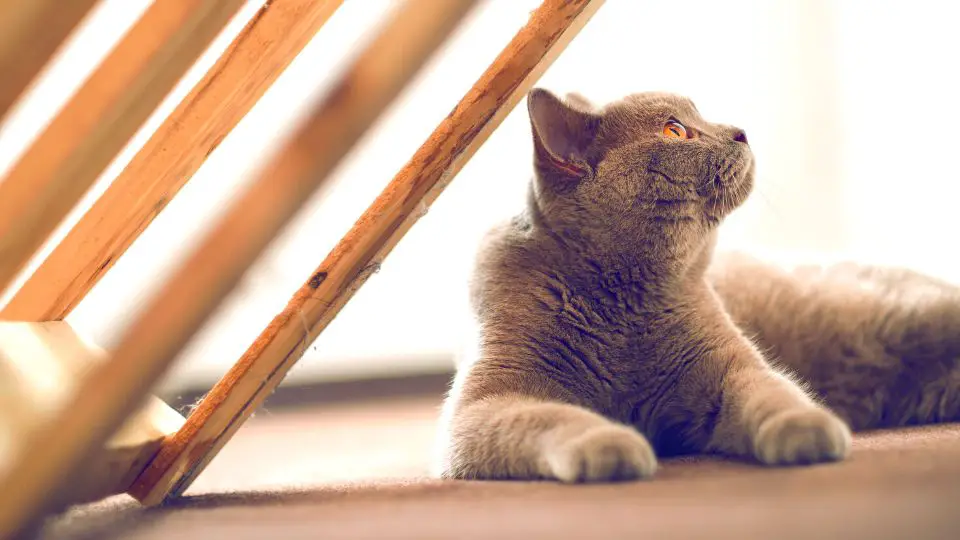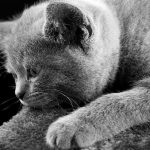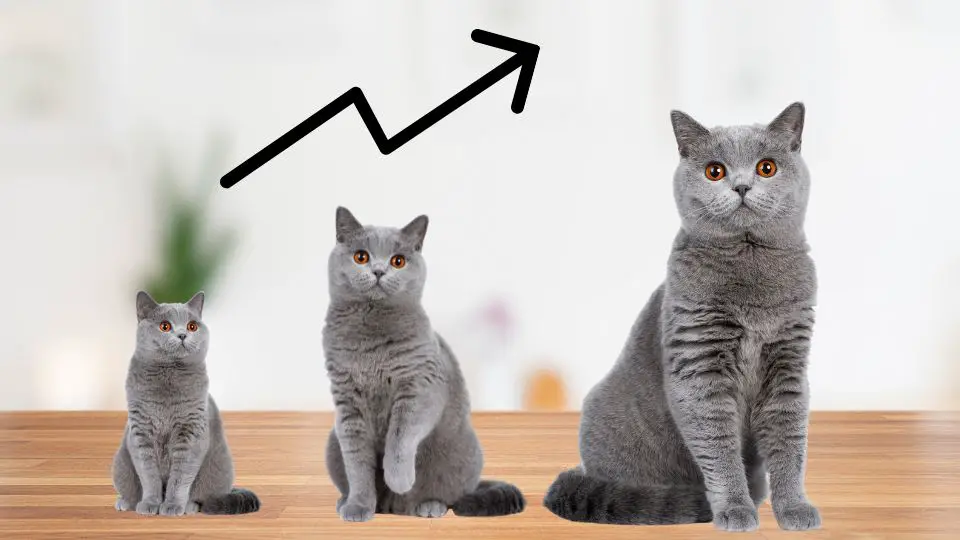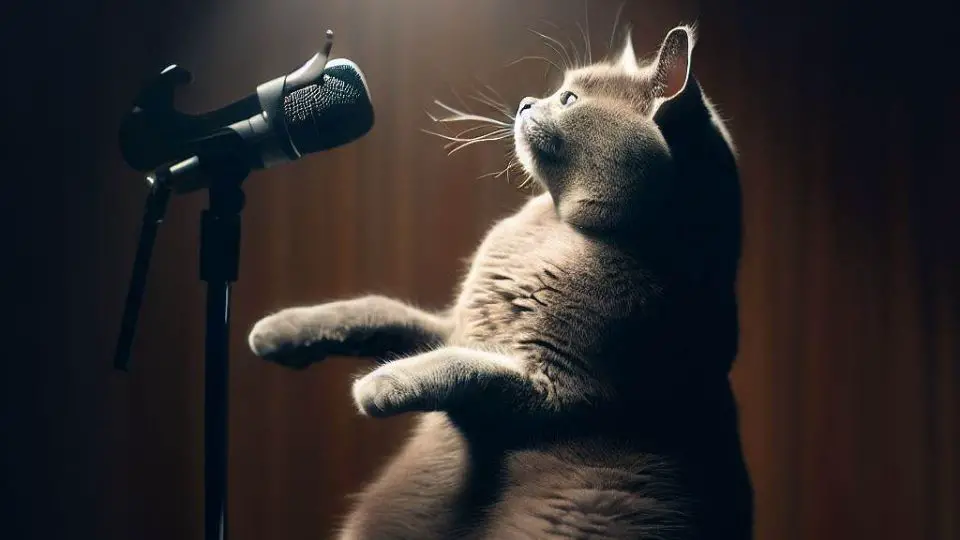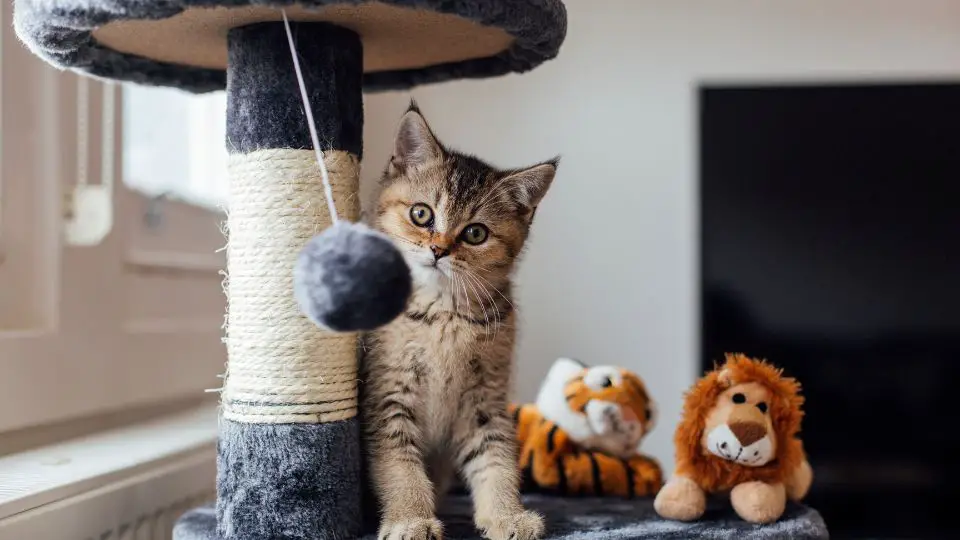If your British Shorthair isn’t eating, it can be concerning and stressful for any pet owner.
There are various reasons why your cat may refuse to eat, such as illness, stress, or changes in their diet or routine.
In this article, we’ll discuss the common reasons why a British Shorthair may not be eating, as well as the symptoms to look out for and what you can do to encourage them to eat.
Reasons why a British shorthair is not eating
As a pet owner, it can be concerning when your British Shorthair suddenly loses their appetite and refuses to eat. While occasional missed meals are common, a prolonged loss of appetite can indicate an underlying health issue.
Here are some of the most common reasons why a British Shorthair may not be eating:
Illness or injury
Illnesses or injuries can cause a loss of appetite in cats. These may include infections, gastrointestinal problems, kidney disease, liver disease, or cancer. Injuries, such as broken bones, can also cause discomfort and pain, which can affect a cat’s desire to eat.
Dental problems
Dental issues such as broken teeth, gum disease, or oral infections can cause pain and discomfort when eating, leading to a loss of appetite. If your British Shorthair seems to be in pain when chewing or has bad breath, it may indicate a dental problem.
Stress or anxiety
Cats can experience stress or anxiety from changes in their environment, such as moving to a new home or introducing a new pet. Changes in daily routine, loud noises, or separation anxiety can also contribute to stress and cause a loss of appetite.
Changes in diet or feeding routine
Sudden changes in diet or feeding routines can cause a loss of appetite in cats. If you have recently changed their diet or feeding routine, it may take time for your British Shorthair to adjust.
As your little pet age, their appetite may decrease due to a slowing metabolism, decreased activity levels, or changes in taste preferences. Older British shorthair may also experience dental problems or illnesses that can affect their appetite.
Behavioral issues
Behavioral issues such as finicky eating habits or food preferences can also cause a loss of appetite in cats. Some cats may be picky eaters and refuse to eat certain types of food or brands.
Depression
Depression can be caused by changes in the cat’s environment, such as the loss of a companion or a change in daily routine. It can also be a result of a medical condition or a side effect of medication. Signs of depression in cats may include lethargy, decreased interest in socializing, and a loss of appetite.
Symptoms of not eating
When a British Shorthair is not eating, it can lead to a range of symptoms that can indicate an underlying health issue. Here are some of the most common symptoms of not eating in cats:
- Loss of appetite: Loss of appetite is the most common symptom of not eating in cats. This may include a complete refusal to eat or a decreased interest in food.
- Weight loss: A lack of food intake can cause a British Shorthair to lose weight quickly. This can be especially concerning if they are already underweight or have a pre-existing medical condition.
- Lethargy: A British Shorthair that is not eating may appear lethargic and less active than usual. They may also sleep more than usual or seem less interested in playtime.
- Vomiting or diarrhea: A lack of food intake can lead to digestive issues such as vomiting or diarrhea. This can be especially concerning if it persists for more than a day.
- Dehydration: When a British Shorthair is not eating, they may also be at risk of dehydration. Signs of dehydration include dry mouth, sunken eyes, and lethargy.
If you notice any of these symptoms in your British Shorthair, it is important to take them to the vet as soon as possible. A lack of food intake can quickly lead to serious health issues, and it’s important to address the underlying cause to prevent further complications.
What to do if your British Shorthair is not eating
If you notice that your British Shorthair is not eating, there are a few steps you can take to encourage them to eat and ensure their health and wellbeing. Here are some things you can do:
Monitor their behavior and symptoms
Keep an eye on your small pet’s behavior and any symptoms they may be experiencing. This can help you determine if there is an underlying health issue that needs to be addressed. Here are some tips on monitoring your British Shorthair’s behavior and symptoms:
- Keep a journal: Keep a journal of your British Shorthair’s eating habits, water intake, and behavior. This can help you identify patterns and changes over time.
- Watch for changes in appetite: A sudden change in appetite, such as a loss of appetite or excessive hunger, can be a sign of an underlying health issue.
- Monitor their water intake: Changes in water intake can also be a sign of an underlying health issue. Make sure your British Shorthair is drinking enough water and watch for changes in their drinking habits.
- Check their litter box: Monitoring your British Shorthair’s litter box can give you insight into their digestive health. Watch for changes in stool color, consistency, and frequency.
- Pay attention to their behavior: Changes in behavior, such as lethargy or increased vocalization, can be a sign of an underlying health issue. Keep an eye on your British Shorthair’s behavior and contact your veterinarian if you notice any concerning changes.
Offer different types of food
Experiment with different types of food to see if your British Shorthair prefers one over the other. Here are some tips on offering different types of food to encourage your British Shorthair to eat:
- Experiment with different flavors: Try offering different flavors of cat food to see if your British Shorthair has a preference. Some cats prefer chicken or fish flavors, while others may prefer beef or lamb.
- Change the texture: Some cats prefer wet food over dry food, or vice versa. You can also try mixing wet and dry food together to create a texture that your cat enjoys.
- Offer treats: Treats can be a great way to entice your British Shorthair to eat. However, be sure to offer them in moderation and choose treats that are healthy and nutritious.
- Warm up their food: Warming up your British Shorthair’s food can help make it more appealing. Try microwaving their food for a few seconds or placing it in warm water for a few minutes.
- Offer small, frequent meals: Some cats may prefer smaller, more frequent meals throughout the day rather than one or two large meals. This can also help prevent digestive issues.
Make sure their feeding area is clean and quiet
A clean and quiet feeding area can help reduce stress and anxiety, which may be contributing to your British Shorthair’s lack of appetite.
Administer prescribed medications or treatments as necessary
f your British Shorthair is experiencing a medical issue that requires treatment, make sure to follow your veterinarian’s instructions for administering medications or other treatments.
Prevention of not eating
Prevention is key when it comes to your British Shorthair’s eating habits. Here are some tips for preventing your cat from refusing to eat:
Regular veterinary check-ups
Regular check-ups with your veterinarian can help identify potential health issues before they become more serious. This can include dental problems, digestive issues, and other health concerns that can affect your British Shorthair’s appetite.
Feeding a balanced and appropriate diet
Feeding your British Shorthair a balanced and appropriate diet is crucial for their overall health and well-being. Make sure to choose a high-quality cat food that is appropriate for their age, activity level, and overall health.
Providing clean water and feeding area
Your British Shorthair may be less likely to eat if their feeding area or water source is dirty or contaminated. Make sure to clean their feeding area and water bowl regularly to ensure that they have access to clean, fresh water and food.
Reducing stressors in the cat’s environment
Cats can be sensitive to changes in their environment and may become stressed or anxious, which can lead to a loss of appetite. Make sure your British Shorthair has a safe and comfortable living space and try to minimize stressors such as loud noises or sudden changes in routine.
Monitoring for changes in appetite or behavior
Regular monitoring of your British Shorthair’s appetite and behavior can help you identify potential issues before they become more serious. Keep an eye out for changes in appetite, lethargy, vomiting, or diarrhea, and contact your veterinarian if you notice any concerning changes.
Conclusion
In conclusion, it’s important to pay close attention to your British Shorthair’s eating habits and behavior. If your cat is not eating, it’s essential to identify the root cause and take appropriate action.
Remember to monitor their behavior, offer different types of food, and provide a clean and quiet feeding area. Additionally, regular veterinary check-ups and a balanced diet can help prevent potential health issues that could affect your cat’s appetite. By taking these steps, you can help ensure that your British Shorthair maintains a healthy appetite and overall well-being.

